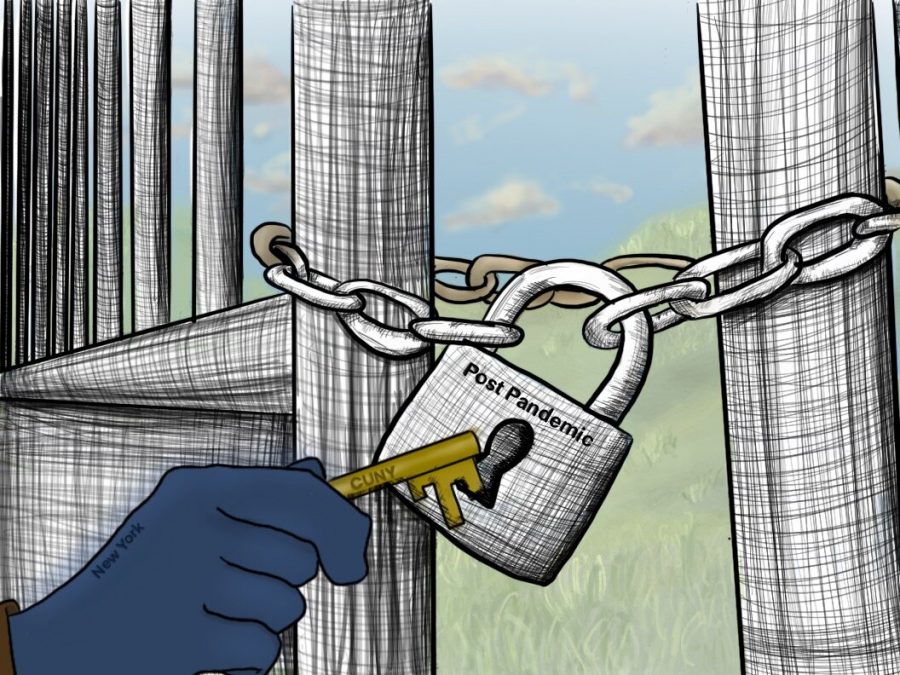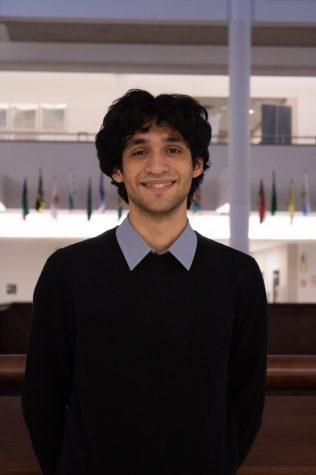CUNY is the key to ending NYC’s economic downturn
February 6, 2021
New York’s exodus from its current financial crisis may be through the public university that for decades has been a catalyst for social mobility — CUNY.
Like many state and local governments, New York has fallen on hard times due to the pandemic. The state’s burgeoning budget deficit is one of the worst nationwide with the government and transportation agencies losing billions in revenue.
The New York Times reported last summer that approximately one-third of all small businesses in New York City would permanently close by the end of the pandemic.
Additionally, the businesses lucky enough to have weathered the storm of multiple lockdowns and case surges have laid off thousands of workers, contributing to New York City closing out 2020 with an 11.4% unemployment rate.
Communities of color have been disproportionately affected by the pandemic-fueled economic crisis New York faces.
During June 2020, unemployment rates in the five boroughs reached “21.1% among Asian residents, 23.7% among Black residents and 22.7% among Latinx residents, compared to just 13.9% among white New Yorkers,” according to a report from the Community Service Society.
State leaders have acknowledged the growing disparity among New York State residents and people across the country, as well as the need to address it in New York’s financial recovery.
“The public is tired of unfilled political promises. Results are the solution. Doing justice is the solution,” said Gov. Andrew Cuomo during his State of the State Address on Jan. 11. “True justice, racial justice, social justice, economic justice, and that must be New York’s banner to carry in America’s post-COVID reconstruction.”
CUNY Chancellor Félix V. Matos Rodriguez lauded the institution’s potential role in New York State’s economic recovery during the early stages of the pandemic. “On so many fronts, we need the talent from CUNY more than ever,” he said in a Facebook post in May 2020.
“The road to New York City’s recovery goes through the City University of New York. We’re going to be the number one partner to the business community, to the city to the state.”
Unlike most public universities, CUNY has a proven track record of contributing to employment in the state it resides in. Data collected from CUNY’s Office of Policy Research showed more than 80% of students stay in New York State and over 70% in New York City.
CUNY has an incredibly diverse student population as the most recent enrollment data from fall 2019 showed 21.2% of students identified as Asian/Pacific Islander, 25.2% identified as Black and 30.2% identified as Hispanic.
The public university additionally has a reputation of lifting students from low-income backgrounds into the middle class and beyond.
In a 2017 study conducted by Harvard economist Raj Chetty, five of the top 10 schools in the economic mobility index were CUNY schools, indicating they were successful in elevating low income students into higher income brackets after graduation.
CUNY’s positioning as an affordable higher education institution that serves underrepresented and low-income communities makes it an integral part in fulfilling New York State’s aspirations of having a a stronger, fairer and more inclusive economy than ever before.
“You can’t have a conversation about the future of New York City’s economy without talking about CUNY,” Winston C. Fisher, a philanthropic funder of The Center for an Urban Future, which is a local think tank that focuses on economic inequality, mobility and opportunity, said.
“CUNY is on the front lines helping to develop a diverse and talented pool of employees for the 21st century economy,” he added.
Matos Rodriguez highlighted the importance of several programs and partnerships CUNY has established in the last few years to provide more job opportunities for students from underserved communities.
One was the CUNY Cultural Corps, a partnership formed in the fall of 2016 between CUNY, the New York City Department of Cultural Affairs and The Rockefeller Foundation aimed to generate opportunities for the university’s students in the arts and culture institutions of the five boroughs.
More recently, CUNY partnered with the New York Jobs CEO Council. Launched in August last year, the coalition is composed of CEOs from 27 of the most prominent employers in the State and is dedicated to providing opportunities and training to low-income and Asian, Black and Latinx New Yorkers.
By 2030, the coalition aims to employ 100,000 New Yorkers from underserved communities and provide 25,000 CUNY students with internships and job opportunities.
“Access to quality education and training for in-demand jobs is key to creating economic opportunity for youth and workers in New York,” Dr. Gail Mellow, the executive director of the council, said.
“Our mission is to ensure people in New York’s most vulnerable communities can access the skills that they need to pursue promising career pathways and benefit from the city’s economic recovery,” Mellow added.
The Chancellor acknowledged while partnerships such as the New York Jobs CEO council are vital to New York’s economic recovery, CUNY can be the key to a stronger and more diverse economy in the near future.
“Clearly, our student body reflects that diversity of New York City, that talent pool that we need to take advantage of to rebuild the city,” Matos Rodriguez said.







